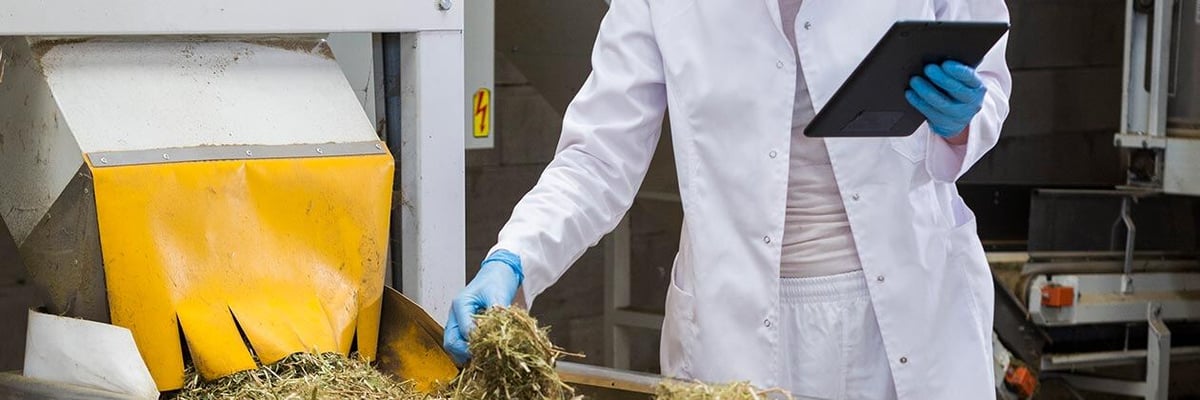Author: Ben Hartman | July 11, 2024 | 3 Min Read
New Colorado Cannabis Regulations – What happened on July 1st, 2024

Two changes took effect July 1st, 2024, in Colorado impacting licensed marijuana operators and hemp safe harbor licensees.
Effective July 1, licensed marijuana operators in Colorado that want to receive a reduced testing allowance for microbial contaminants must do two things:
- Implement a Hazard Analysis and Critical Control Points (HACCP) system; and
- Conduct an internal audit to assess their “substantial compliance with rule requirements” and achieve a passing score.
Under the new rules, a marijuana licensee’s HACCP system must adhere to the elements described in ASTM standard D8250 “Standard Practice for Applying a Hazard Analysis Critical Control Points (HACCP) System for Cannabis Consumable Products.”
Licensees must also score at least 80 percent on their internal audit to show compliance.
According to Darwin Millard, Technical Director of CSQ Cannabis Safety & Quality, under the new rules companies must prove to the state of Colorado that they have validated their own processes to receive or maintain a reduced testing allowance - but what this entails is less clear.
“The new rule does not clarify how the licensed operator submits evidence of their self-assessment or evidence of implementing the HACCP system, nor what constitutes as evidence the State will accept. Aside from the assertion form that they (the Colorado Marijuana Enforcement Division) have you fill out saying that you understand the new requirements, there is limited information available from them.”
Millard added “they provide you with a scoring rubric, but don't tell you how to score yourself,” and that “there are no specifics from the State yet as to what information they want from licensed marijuana operators.”
“I think the companies who actually try to go for reduced testing and actually go through this process will, in the end, produce safer, higher quality products,” Millard said.
Another new rule went into effect on July 1st, requiring safe harbor hemp manufacturers and storage facilities to “demonstrate compliance with the federal current good manufacturing practices (cGMP) for food or dietary supplements before registering or within 12 months after the previous registration.”
The new rules state that safe harbor companies can do so by providing “evidence of obtaining a certification from a department-approved third-party auditor” no later than July 1st, 2025.
The new rules do not specify which third-party auditors are to be used, only that they must be accredited and approved by the State. The CDPHE intends to make a list of approved certification bodies available to the public and will publish it on its Hemp Resources Website.
According to the state of Colorado, a safe harbor hemp product is “a hemp-derived compound or cannabinoid, whether a finished product or in the process of being produced, that is permitted to be manufactured for distribution, produced for distribution, packaged for distribution, processed for distribution, prepared for distribution, treated for distribution, transported for distribution, or held for distribution in Colorado for export from Colorado but that is not permitted to be sold or distributed in Colorado.”
“Colorado has taken the position that hemp safe harbor products are not safe for Coloradans, but if you want to push these products on other people, go right ahead,” Millard stated.
Millard told Rootwurks he believes that the new rules for hemp safe harbor products indicate regulators' desire for better oversight of cannabinoid products in general.
“They want cannabinoids to be regulated the same regardless of if the source is cannabis or hemp. They do not see a difference, whether it comes from marijuana or hemp, the cannabinoid is a cannabinoid, regulators get that.”
He added “whether that means we'll see bans and more restrictions, I can't say, but will we see changes and more regulation specific to cannabinoid products? Absolutely.”
Licensed marijuana companies in Colorado that are interested in receiving or maintaining a reduced testing allowance can attain HACCP and auditor training from Rootwurks to assist them with establishing a HACCP system and conducting the self-assessment portion of the requirements. In addition, the suite of self-auditing tools included in the Rootwurks Learning Experience Platform provides companies with the means of self-auditing their operations to gauge adherence to regulatory requirements.
Along with Rootwurks training modules, licensed marijuana companies in Colorado can utilize the Reduced Testing Allowance Compliance Guide and Documents Package provided by CSQ, to prepare and verify their compliance document submission to the State.
Hemp safe harbor licensees in Colorado in need of a cGMP certification can attain one from CSQ, a member of ASI Food Safety, an official Rootwurks provider, and an ANAB-accredited third-party certification body servicing the cannabis industries (both marijuana and hemp).
Contributors

Ben Hartman
From HACCP certification to the basics of hygiene, our on-demand courseware has you covered.







